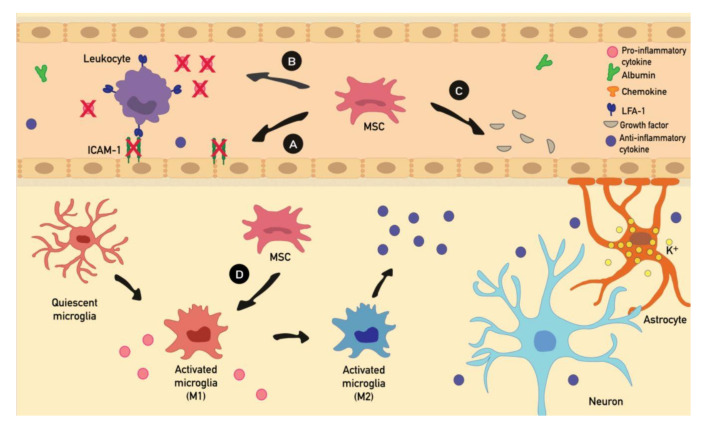Figure 3.
The putative effects of MSC therapy on the inflammatory cascade of events during seizures. (A) MSCs downregulate adhesion molecule (e.g., ICAM-1) expression. (B) MSCs inhibit leukocytes by blocking their pro-inflammatory factor expression, resulting in decreasing levels of proinflammatory cytokine and leukocyte cell recruitment at the site of damage. (C) MSCs release various factors (e.g., KGF, EGF, VEGF and PDGF), involved in maintaining endothelial integrity and preventing interactions between leukocytes and endothelial cells. (D) In addition, MSCs promote the switching of microglia from a pro-inflammatory (type 1) to an anti-inflammatory (type 2) phenotype, thus increasing the level of anti-inflammatory cytokines (IL-4 and IL-10). Anti-inflammatory cytokines reduce inflammation by suppressing microglia and T cell activation, pro-inflammatory cytokine production, and leukocyte recruitment.

